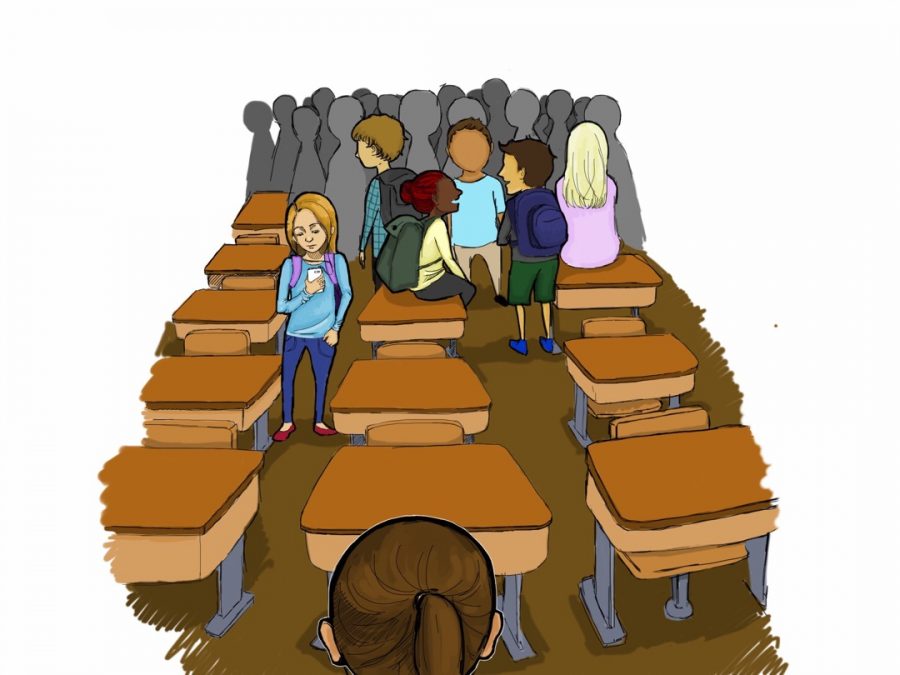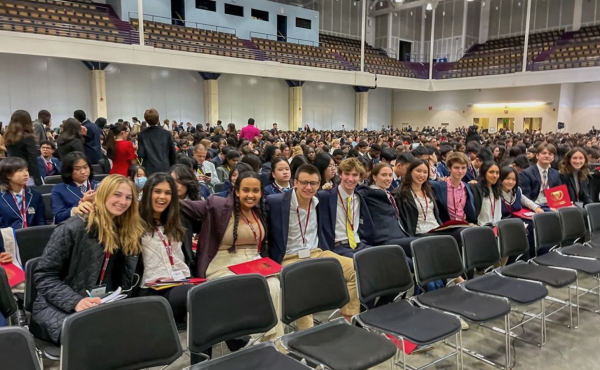Roll Call Attendance Drops
Phoebe Shi ’19
The Schoolroom, in its stately timelessness, is illuminated by the Massachusetts morning sun. A bell signals the beginning of Roll Call, when all students and faculty are supposed to coalesce in the Schoolroom to hear any important announcements for the day. In theory, the room should be filled to the brim and announcements should be punctuated by thundering applause. In reality, Roll Call is entirely different: fewer students make announcements, and those who have the courage can’t be heard over whispers from the corners of the Schoolroom. Even faculty announcements are often greeted with sparing applause.
Roll Call is in the midst of a significant attendance dip. In a survey conducted on the issue, two thirds of faculty and more than forty percent of students responded that they did not consistently attend. Applying these results to the campus at large paints a disheartening picture of attendance: less than two hundred and sixty of Groton’s almost five hundred faculty and students are at Roll Call each morning.
Roll Call has not served its original purpose of taking student attendance for many years now. Students and faculty, however, are still expected to be present; the 2016-2017 Student Parent Handbook explicitly states that students are not to use this time for working or for social activities. This does not, however, seem to be a deterrent to the large minority of students that frequently misses Roll Call. Senior Prefect Feild Gomila ’17, who shares the responsibility of running Roll Call with the other Senior and House Prefects, has also noticed the drop in student presence: “When I was in Third Form, everyone was there–it was hard to get in and out. Now when I run it on Saturdays, there’s barely anyone there.”
In a survey conducted of 235 Groton students and faculty, the results for student attendance were unsurprising: forty percent admitted openly that they did not attend. Of these, more than half said that they rely on this period for work. The next two most popular reasons for students’ absence are the perceived dullness of the time and the inability to understand announcements. Ben Cardinal ’18 speaks to the former: “Announcements used to be funny, but now they’re pretty dry.” A small number of students brought up the issue of censorship: over the past few years, certain students have been chastised or discipline for inappropriate announcements. Rand Hough ’17, who witnessed such announcements that led to reproof, speaks to this lack of freedom: “In past years, you never really knew what was going to happen during Roll Call, and that was very entertaining, but now I expect nothing other than School-approved announcements.”
The issues of length and Work Program, which some may have believed important to students’ not attending, were of little importance to respondents. Only 11% of those who responded that they did not attend Roll Call cited length as a factor in their decision to skip. Work Program, designed to ensure that students maintained responsibility for their living and working spaces, is done by most students in the time between Chapel and the first morning class – the same time period as Roll Call. Since demerits are awarded for missing Work Program but not for missing Roll Call, this might initially appear a compelling reason for an industrious student to skip Roll Call. The data tells another story: not a single respondent cited Work Program as a significant factor in their decision not to attend.
One new argument made by the students to miss Roll Call stood out as a frequent response: the café on the lower floor of the Schoolhouse. This is a factor that did not exist before last year, when the café opened and began serving coffee, tea, fruit, and bagels to students throughout the academic day. Many of the written comments received in the survey stated that the students skipped in order to beat the line for bagels and drinks.
The faculty’s responses were perhaps even more surprising: only one third of the 37 faculty who responded professed to consistently attend Roll Call. Far and away the most popular reason given for not attending was difficulty hearing announcements, a response shared by more than half of those who don’t attend Roll Call. Interestingly, almost half of faculty who skip Roll Call use that time to work, suggesting that the Groton workload extends even to teachers.
Academic Dean Kathy Leggat believes that this is not, in fact, a new phenomenon: “I might say that Roll Call attendance has fluctuated over the years, rather than having been in steady decline.” Back in the 1990s, she recalls, the school pushed to do away with Roll Call entirely in order to increase the amount of time available for classes to meet. “We did it,” she says, “because Roll Call attendance was thin, and announcements were silly, non-existent, or tasteless.” Students resisted the changes, asserting that Roll Call both provided a much-needed break from strenuous academics and allowed students to practice public speaking. After this incident, Ms. Leggat recalls, attendance and appreciation for Roll Call grew greatly.
The two primary suggestions offered to improve both Roll Call and student attendance thereof are the use of proper diction and volume by students and the inclusion of humor in Roll Call proceedings–many of those surveyed said they only attend Roll Call during Spirit Week, when important announcements are mixed with comedic ones. Until Roll Call can make these changes, however, the school must settle for significantly reduced attendance and enthusiasm.







